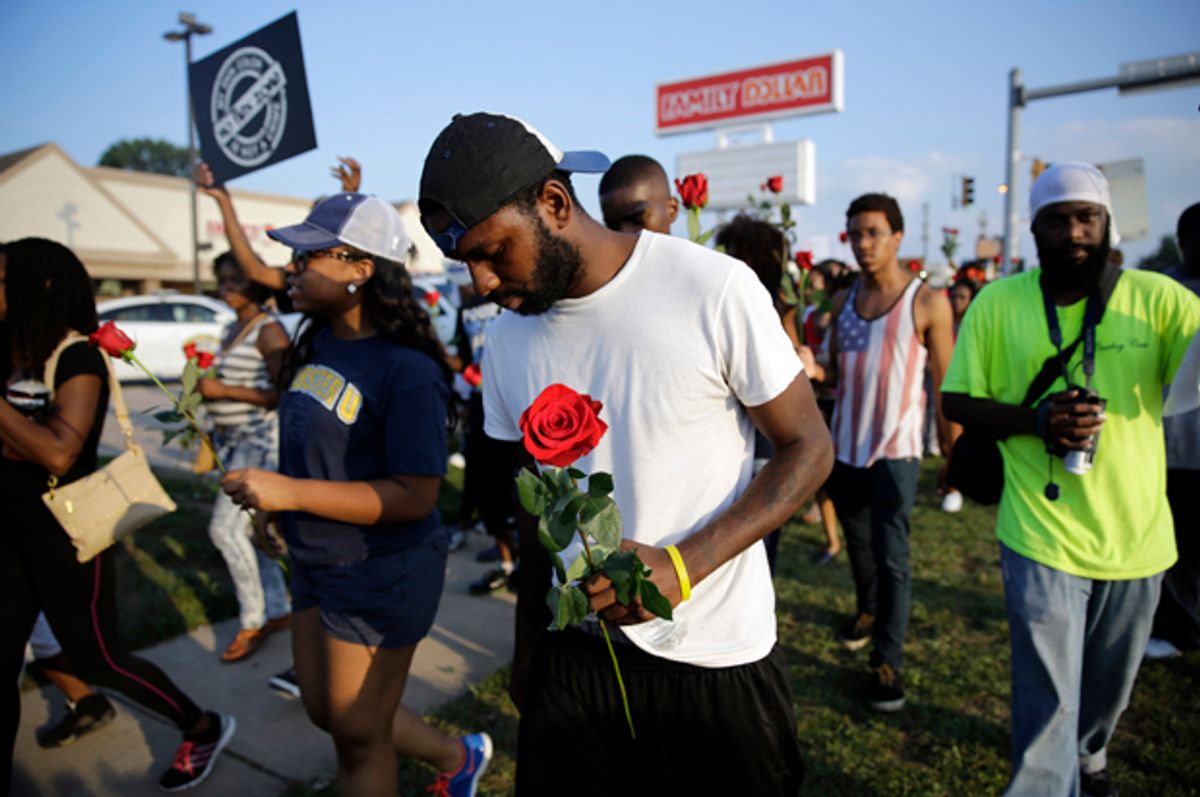No exercise has pained me quite like this one. As I sit at the foot of my bed, grasping for new, creative ways to recycle words I've already uttered and written, I am haunted by misfortune. When one is granted the needed time and afflicted with the right condition, he learns there is an infinite number of ways in which he may convey the horror of anti-black mutilation. He learns the romance of murder; how to craft and fashion his phrases such that the balance of unrelenting outrage and insightful prophecy is perfect. I've not yet reached this perfection, but with each passing moment, and each cold, black body slumped upon the concrete, I'm inching uncomfortably close. This is the introduction to a tragic piece you've already read and I've already written, and our familiarity with it induces a degree of depression and rage that is -- fundamentally -- relatable, completely understandable, and often admirable.
The archetypal response, in the wake of such brutality as has reared itself in Ferguson, Missouri, is an attempt to temper the anger of the oppressed; canned suggestions of "peace," and "solitude," and colorless "solidarity" smother the expressions of true black anguish and rage resonating from block to block. So often, media fixations upon looting and rioting in communities wounded by racism insist these are the beginnings of anarchy, without referencing the anarchy that begets them. Looting and rioting are not the advents of anarchy in Ferguson; they are the reflections of anarchy in Ferguson. The anarchy began when 18-year old Michael Brown's body -- absent a weapon of any kind -- was riddled with bullets sponsored by his own tax dollars; the anarchy began when he lay lifeless for hours in the Missouri swelter.
A most important question remains in Ferguson, Missouri, and quite frankly, throughout the entire country: For black folks, why be peaceful? This is an unsettling question to which the response is still uncertain. For peace to occur, the answer need be a straightforward one: "Because peace begets peace." If peace were clearly incentivized in Ferguson, Missouri, peace would wash over Ferguson, Missouri. That it hasn't done so is a striking commentary on the afflicted condition of African-Americans. The behavior of the oppressed does not influence the actions of the oppressor. The suggestion that black folks be peaceful to receive peace in return is ignorant of American history; in it, stories ad nauseam of peaceful black folks murdered by police while standing, while sitting, with hands up, with hands down, while holding babies, while driving, while walking, while talking, while yelling, while sleeping, while bathing, while typing, while riding the train, while singing, while leading countries. Never has peace been incentivized. Always has it been urged.
The rage that fuels racism and the rage in response to racism are not coplanar. Simply: The former is inexplicable sin, the latter is justifiable sentiment. Arriving at this conclusion requires that, in the United States of America, racism be viewed as the sinister force it is; never can it be considered benign, whether it results in an unnecessary traffic stop or a bullet lodged in the brain of an 18-year-old. Arriving at this conclusion requires a respect for the immense power of intoxication racism demonstrates, both in hypnotizing its actors and inspiring its victims. Racism in American cannot, however, be eradicated while criticizing the anger of those it injures, because a true understanding of the impact, incredible reach and tremendous harm of racism would see that anger as the only reasonable response. When anti-racist anger is expressed and calls for peace are the response, silence -- not peace -- seems the intended outcome.
The onus of reconciliation never falls upon the oppressed, but rather solely upon the oppressor. The United States of America, in these times of frightening and disheartening familiarity, is forced -- once more -- to acknowledge the persistence of its historic, grotesque violence levied against the black body. And, perhaps, most unfortunate is that this most recent incident of mutilation has already disappeared into the ether of American ideological duality. Some in America, excluding its pigmented polis, have not yet concluded whether a black or brown man is worth more upright -- proud, and virile, and strong -- or strewn across the street in a puddle of his own maroon. I cannot, in earnest, expect a man to accept such a reality without anger. I respect his anger. I love it with all my heart. I will only pray he guide it as best he can.

Shares